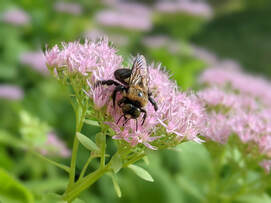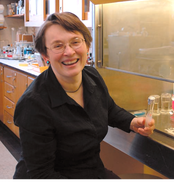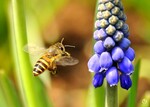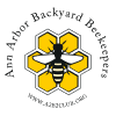 Did you know that there are over 450 species of native bees in MI! The kicker is that honey bees are NOT one of them! It's important for beekeepers to remember our native pollinators. Who are our native MI bees? Here's a short list, but I'd also recommend this YouTube video by MSU professor of entomology Rufus Isaacs. https://www.youtube.com/watch?v=T2N5DoyRoLI All Seasons Bees: Bumble Bees Sweat Bees Carpenter Bees Spring Bees: Mason Bees Miner Bees Cellophane Bees Cuckoo Bees Summer Bees: *Squash Bees* (my favorite!: https://www.facebook.com/DyceLab/videos/359136995931540) Leafcutter Bees Long-horned Bees Top 10 Things You Can Do To Help Native Pollinators: 1. Provide Habitat: Don't have a turf grass lawn. Put up a native pollinator house. 2. Don't Use Pesticides: Or, if you HAVE to use them, find the least harmful time, location, season, etc. to use them. 3. Plant Pollinator Friendly Plants: And not 1 or 2. Pollinators are much more likely to frequent clusters or bunches of flowering plants. 4. Plant Trees: Trees are the meadows of the sky! Maples and Willows are especially important as early pollen sources while fruit trees (NOT PEARS!!!) provide nectar. 5. Become a Wildlife Gardener and/or Plant Native Plants 6. Adopt a Monarch and Plant Milkweed: Butterflies are important pollinators too! 7. Protect Grasslands and Native Habitat: Through community endeavors and by talking with your local government officials or voting for habitat conservation. 8. Join Conservation Organizations: And donate generously! 9. Post a Yard Sign: To advertise the importance of your pollinator garden. 10. Spread the Word About Native Pollinators on Social Media: Or at your local garden or plant club or on your blog. Topic: Managing Your Apiary for Overwintering SuccessThe main presentation starts at 7 pm, but feel free to sign in starting at 6:30 pm for a beginners Q&A session. See our Facebook page or join via the Zoom link above. NOTE: Please post questions/comments in the Zoom chat. Facebook is not monitored during our educational meetings.  Speaker: Dr. Christina M. Wahl, Associate Professor (retired) Wells College, and Courtesy Assistant Professor (retired), Department of Biomedical Sciences, Cornell University. A fourth-generation beekeeper from upstate New York who grew up working in her family’s commercial beekeeping business, the Thousand Islands Apiaries, Professor Wahl is a physiologist and developmental biologist with technical expertise in microscopic surgery, microscopic anatomy, and histology. She has 30 years of research experience, much of it supported by the National Institutes of Health. She has taught at Cornell University, in Ithaca, NY, and at Wells College, in Aurora, NY. Dr. Wahl has been a volunteer instructor for the NY Bee Wellness program, and has both taught and mentored beginning beekeepers in the Finger Lakes region. She has designed and co-taught workshops on queen rearing. She developed the educational exhibit on honeybees and pollinators at the New York State Fair. She is the editor of the book “Morphometrics” published by InTech. She has authored several book chapters and many original peer-reviewed research papers and has been a member of several professional science organizations. Professor Wahl also collaborated with Senior Extension Associate Emma K. Walters (Mullen) at Cornell University on a study entitled “Number and distribution of multiple foundress mites Varroa destructor in northern New York drone brood combs during spring and fall.” She is actively engaged in efforts to better understand and prevent health problems of the honeybee. Please join us - our monthly meetings are always free and open to the public!Topic: Sustainable BeekeepingManaging your apiary for survival and resilience  The main presentation starts at 7 pm, but feel free to sign in starting at 6:30 pm for a beginners Q&A session. See our Facebook page or join via the Zoom link above. NOTE: Please post questions/comments in the Zoom chat. Facebook is not monitored during our educational meetings. Speaker: Ed Szymanski, along with his wife Marian, are homesteaders who take care of bees, chickens, and a lot of fruits, vegetables, and flowers on an acre-plus lot with no lawn in Franklin, Massachusetts. Ed and Marian speak to bee clubs and garden clubs about planting for honey bees and pollinators. Ed also runs an intermediate-level bee school program that last year drew 300 students. Ed has been President of Norfolk County Beekeepers Association and is involved with both Massachusetts and Rhode Island state associations. He has made a hobby and a small business of photographing bees and pollinators at work. Ed's article "Top 10 Pollinator Plants for the Northeast" was be published in the Autumn issue of 2 Million Blossoms, a quarterly national magazine devoted to pollinators. Please join us - our monthly meetings are always free and open to the public! |
Archives
February 2024
Categories
All
|

